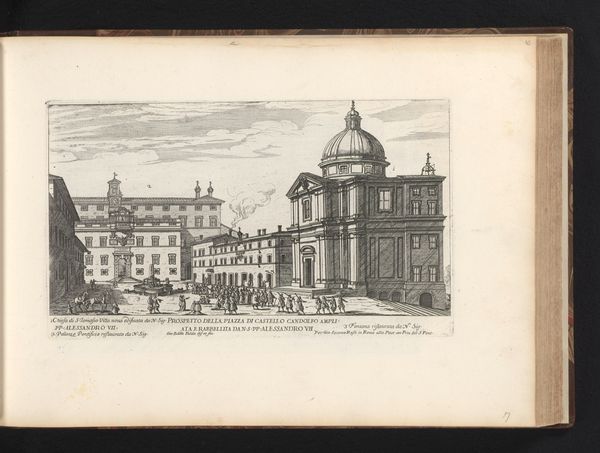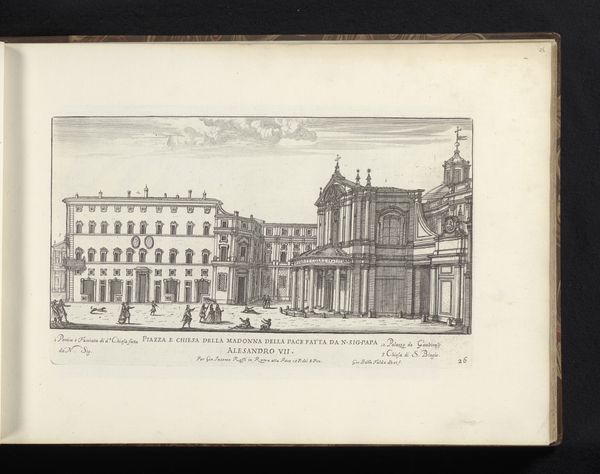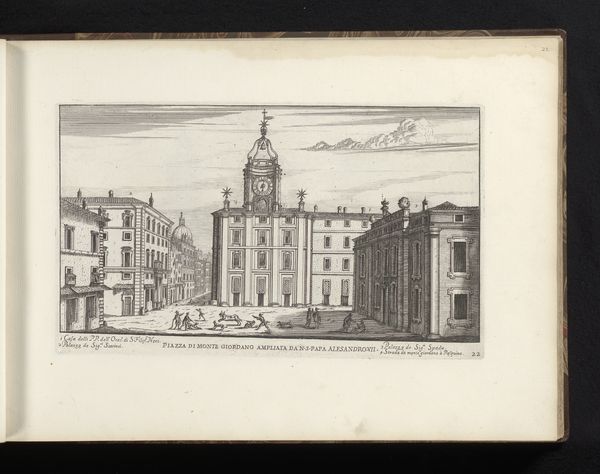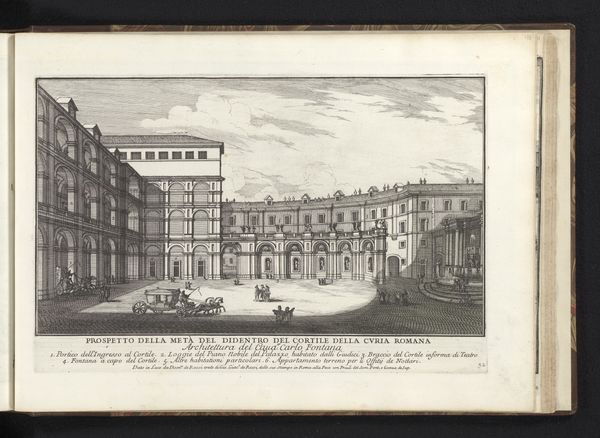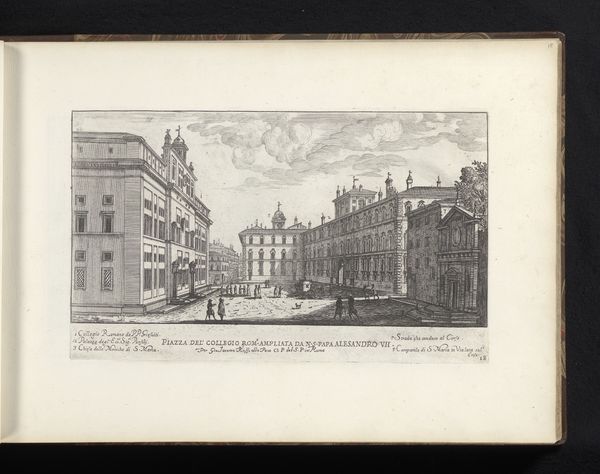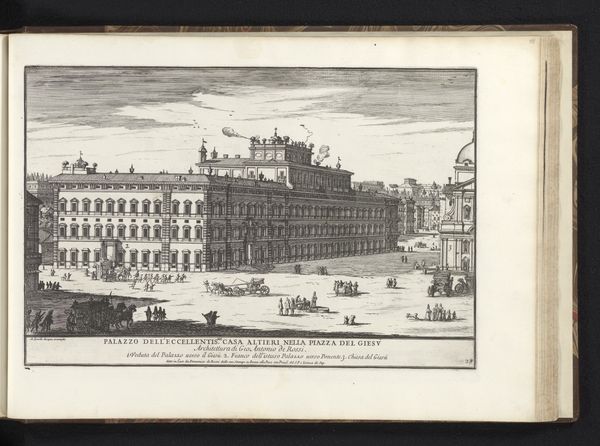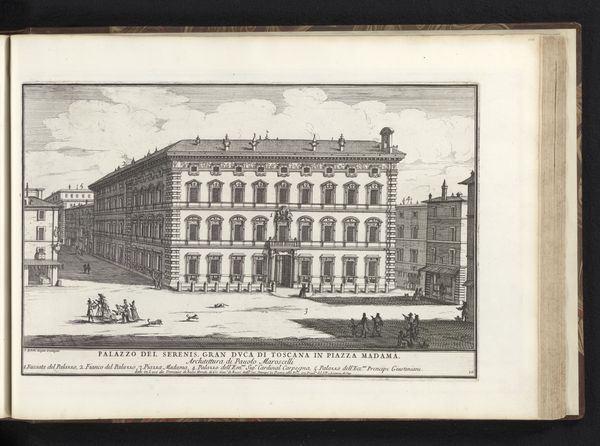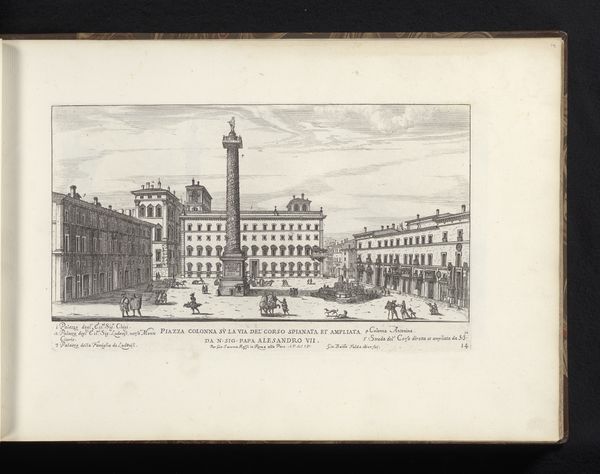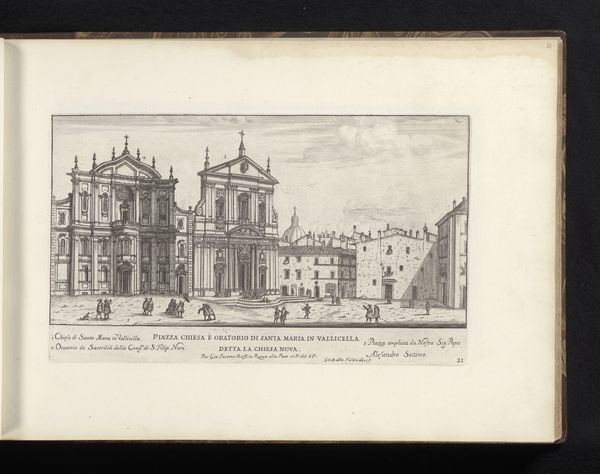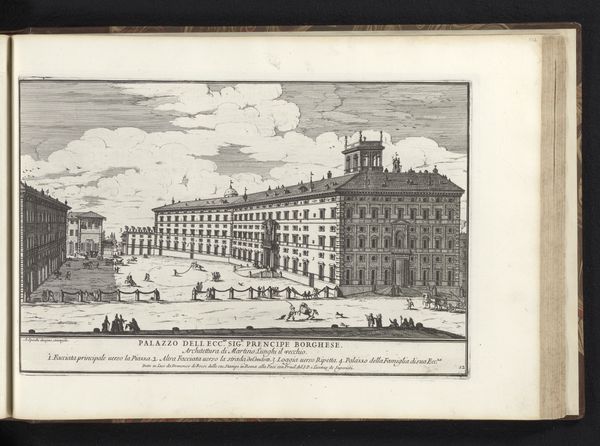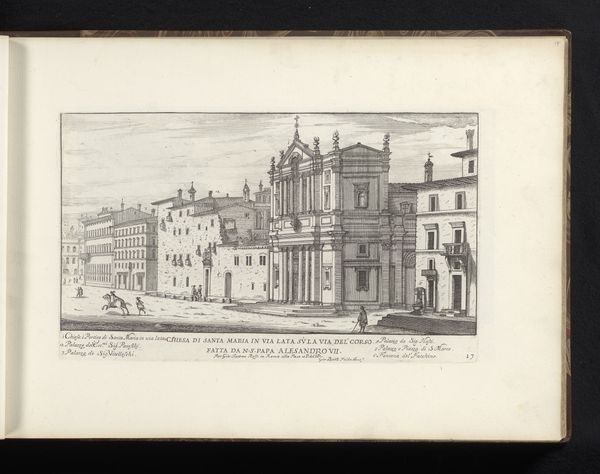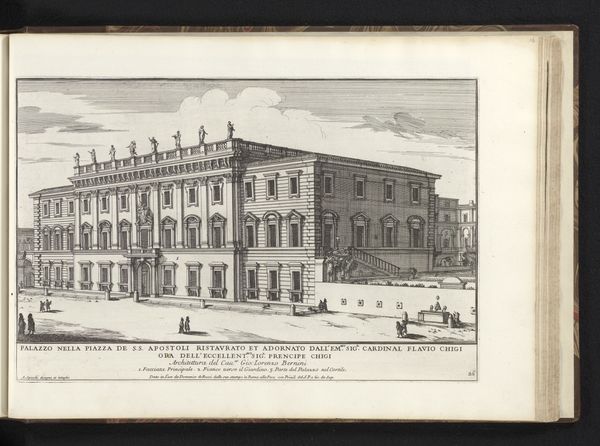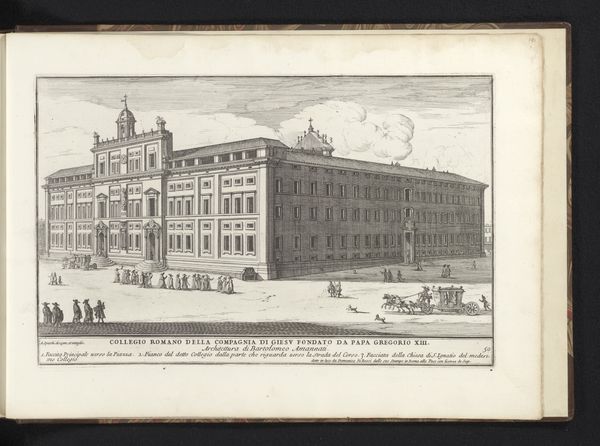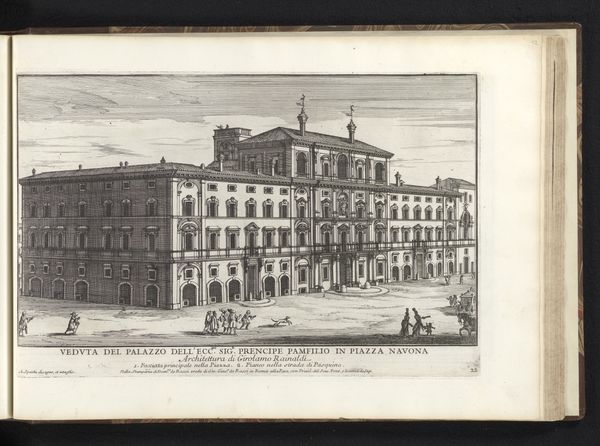
drawing, print, pen, engraving, architecture
#
drawing
#
aged paper
#
baroque
#
pen drawing
# print
#
old engraving style
#
sketch book
#
personal sketchbook
#
pen-ink sketch
#
square
#
pen and pencil
#
pen work
#
sketchbook drawing
#
pen
#
cityscape
#
sketchbook art
#
engraving
#
architecture
Dimensions: height 173 mm, width 290 mm
Copyright: Rijks Museum: Open Domain
Curator: Here we have Giovanni Battista Falda’s “Piazza di Monte Giordano in Rome,” created in 1665 using engraving and pen. The cool precision makes it appealing, it's very linear. How would you respond to it? Editor: I find the symmetry of the buildings and the vast emptiness of the piazza striking, almost unsettling. What sort of messages are conveyed through such detailed architecture, but such few people? Curator: The architecture *is* communicating, absolutely. The image almost reveres classical balance through repetition. Think about the symbolic implications: order imposed upon the urban space and by extension, upon society itself. It's baroque Rome projecting an image of power and permanence, even in pen and ink. What memories do the architectural forms summon? Editor: They speak of authority, don't they? The tall buildings with ordered windows make me think of institutions, but maybe also of human potential disciplined and expressed. Do you think Falda’s choice to depict the piazza nearly empty amplifies this sense of austere power? Curator: I do. Consider absence as a symbol. An empty space anticipates an event, or perhaps mourns a loss. The void in Falda’s image magnifies our own presence as viewers. We’re invited to occupy that symbolic space, to project our interpretations onto it, aren’t we? Editor: That's true, the emptiness draws attention to our perspective. I hadn't considered it that way. Thank you! Curator: It also illustrates that symbolism is powerful precisely because its readings change across contexts. Looking closely at it, I have also broadened my understanding of 17th century Urban Architecture!
Comments
No comments
Be the first to comment and join the conversation on the ultimate creative platform.
